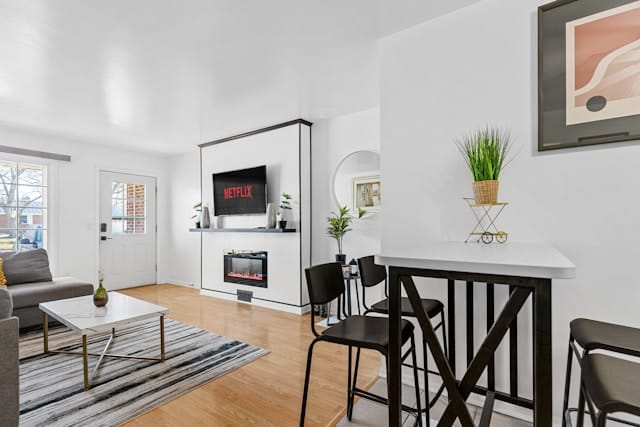The joy of hosting on Airbnb—sharing your space, meeting new people, and earning extra income—is a fantastic experience. However, there’s an unspoken anxiety that lingers with every booking: the fear of property damage. Most guests treat the space well, but spills, scratches, or worse still happen.
You open the door after checkout and see a cracked window, red wine on the sofa, or a game console gone. The first moment is stressful. This guide walks you through the next steps, showing how to use Airbnb’s AirCover policy and simple habits, maximizing your chances of a full
What to Do Immediately After Finding Guest Damage
Your swift action immediately after discovering the damage is the single most crucial factor in a successful claim. Do not delay.
1. Assess the Extent of the Loss
Before touching or cleaning anything, take a moment to understand the scope of the damage. Is it minor (a broken glass, a small stain) or major (structural damage, a serious flood)? Your assessment will determine the urgency and the resources needed for repair.
2. Critical Step: Gather Comprehensive Evidence
The Airbnb Resolution Center relies entirely on the evidence you provide. You must treat this stage like collecting proof for a legal case. The more evidence you have, the less room there is for the guest or Airbnb Support to question your claim.
- Take Detailed Photos and Videos: Capture the damage from multiple perspectives. Take a wide-angle shot showing the item in the room, then a close-up clearly depicting the fault. For stains, use different lighting angles.
- Use Timestamps: If possible, use a camera or phone setting that automatically adds a timestamp to your photos. This proves the damage existed immediately after the guest’s checkout, preventing claims that a subsequent guest caused it.
- Document Missing Items: If something is stolen or missing, take a photo of the empty space where the item was located.
- Get Statements: If your cleaner, property manager, or neighbor discovered the damage, ask them for a written or recorded statement describing what they saw.
3. Obtain Repair and Replacement Quotes
To request a fair amount, you need to prove the cost. Before submitting your claim, secure the following:
- Repair Estimates: Get a formal quote from a reputable local contractor, plumber, or repair person for any significant damage (e.g., drywall repair, appliance replacement).
- Cleaning Estimates: For deep stains or severe messes, get a quote from a professional cleaning service that outlines the unexpected labor and materials required.
- Replacement Receipts: For easily replaceable items (e.g., a coffee maker, a chair), provide the original purchase receipt, or a link to the exact replacement item, demonstrating the current market price.
Pro Tip: Do not rely on generic online prices. Use invoices and quotes specific to your location and the required labor.
Understanding the Airbnb Damage Policy: AirCover for Hosts
The primary mechanism for financial protection is AirCover for Hosts, which is free and included with every booking. It’s essential to know exactly what it covers.
The Two Pillars of AirCover
- Host Damage Protection ($3 Million Coverage): This is the part that directly addresses physical damage caused by a guest (or their invitees) to your home, furnishings, and belongings. It’s a guarantee from Airbnb that is triggered if the guest refuses to pay.
- Host Liability Insurance ($1 Million Coverage): This covers you for legal liability if a guest is injured or their property is damaged or stolen while staying at your Airbnb.
Step-by-Step: The Claim Process Through the Resolution Center
Once your evidence and quotes are ready, you must act fast. You have a very small window to submit your initial request.
Step 1: Initiate Communication with the Guest
Before escalating to a full claim, attempt to resolve the issue directly with the guest in a professional and non-accusatory tone. Send them a message through the Airbnb messaging system:
"Hi [Guest Name], I hope you had a great stay. Unfortunately, our cleaning crew noticed [describe the damage simply, e.g., a large burn mark on the kitchen counter] after your checkout. Can you please provide any information on what happened? We will be submitting a claim for the cost of repair."
This initial message starts the paper trail and fulfills the requirement to try to resolve the issue directly.
Step 2: File a Request in the Resolution Center
Regardless of the guest's response, if you plan to seek reimbursement, you must submit a claim through the Resolution Center.
- Timeline is Critical: The request must be submitted within 14 days of the responsible guest's checkout date and before the next guest checks in. Missing this window is the most common reason claims are denied.
- Detail the Claim: Select the option "Request compensation for damages." Clearly list each damaged item and the corresponding amount you are requesting, backed by your quotes and receipts.
- Attach All Evidence: Upload all the documentation you gathered in Section I (photos, videos, receipts, quotes).
Step 3: Guest Response and the 24-Hour Window
Once you submit the claim, the guest receives a notification. They have 24 hours to respond in one of three ways:
- Accept and Pay: The funds are transferred from the guest to you. The case is closed.
- Partially Pay or Decline: The guest disputes the amount or refuses to pay.
- Ignore the Request: The 24-hour window passes without a response.
Step 4: Request Reimbursement under Host Damage Protection
If the guest declines, ignores the request, or only pays a portion, the matter now involves Airbnb Support.
- Escalate the Case: In the Resolution Center, there will be an option to "Involve Airbnb" or "Request reimbursement under Host Damage Protection." Click this.
- Airbnb Review: A dedicated support team member will review all the evidence provided by both you and the guest. They will determine if the guest is responsible and if the requested cost is reasonable.
- Timeline: This review process can take a few days to a few weeks, depending on the complexity of the case. Airbnb will contact you with their final decision regarding the payout.
Protecting Your Business: Prevention and Other Insurance
A great host is proactive, not just reactive. While the Airbnb damage policy is robust, the best protection is prevention.
1. Optimize Your House Rules
Beyond the standard rules, include specific clauses that address the most common and costly types of damage:
- Party Prohibition: Explicitly state the rules against unauthorized gatherings and the penalty (e.g., immediate cancellation without refund).
- Appliance Use: Provide simple, clear instructions for any complex or sensitive appliances (e.g., garbage disposal, hot tub).
- Check-Out List: A simple list of requests—like turning off lights and locking the door—reinforces the guest’s sense of responsibility for the property.
2. Invest in External Insurance
Do not rely solely on AirCover. Many hosts fail to realize that their standard homeowner's policy will not cover damage or liability incidents that occur while operating a commercial short-term rental business.
- Dedicated STR Policy: Purchase a specialized short-term rental insurance policy that fills the gaps left by AirCover and traditional insurance. This often provides higher liability limits and clearer coverage for loss of income.
3. Simplify Your Property
The fewer items you have, the less there is to break.
- Remove Valuables: Store personal items, expensive antiques, or irreplaceable valuables in a locked owner’s closet.
- Durable Materials: When renovating or furnishing, prioritize durable, easily cleanable materials (e.g., high-quality vinyl flooring, darker upholstery fabric) that can withstand constant guest turnover.
Conclusion
By following this four-stage approach—immediate documentation, understanding AirCover, following the Resolution Center process, and enacting preventative measures—you can confidently protect your investment and ensure that guest damage remains a manageable inconvenience, not a financial disaster.

